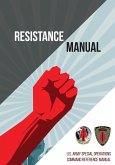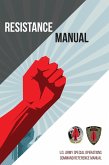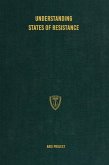The modern use of the word resistance was first based on the domestic insurgent movements of Europe against Axis occupying powers in World War Two, especially the French Resistance. The conception of resistance as a domestic effort against an encroaching foreign force had a lasting impact on definitions of the term throughout the US military as communist regimes were understood as politically executed occupations. In the original 1963 publication of the seminal Undergrounds in Insurgent, Revolutionary, and Resistance Warfare (also republished in its entirety by Conflict Research Group in 2024), the Special Operations Research Office (SORO) cited a 1949 text, defining resistance as distinct from revolutions and insurgencies: "operations directed against an enemy, behind his lines, by discontented elements among the enemy or enemy occupied population." This conception of resistance as inherently insurgent in nature remains influential. The 2012 Guide to the Analysis of Insurgency (also republished by Conflict Research Group in 2024) defines resistance as a type of insurgency (distinct from revolutionary, separatist, and other variants) that "seek[s] to compel an occupying power to withdraw from a given territory." The definitions rely on describing resistance as corollary of interstate war and as a product resulting from armed violence. Alternatively, there has also been a broadening strain of thought on the nature of resistance in two regards: first, that resistance does not need to be against a foreign occupier, and second, that it does not need to be carried out through the predominant use of violent tactics. Resistance is a science and The Science of Resistance demystifies that science.
Hinweis: Dieser Artikel kann nur an eine deutsche Lieferadresse ausgeliefert werden.
Hinweis: Dieser Artikel kann nur an eine deutsche Lieferadresse ausgeliefert werden.








